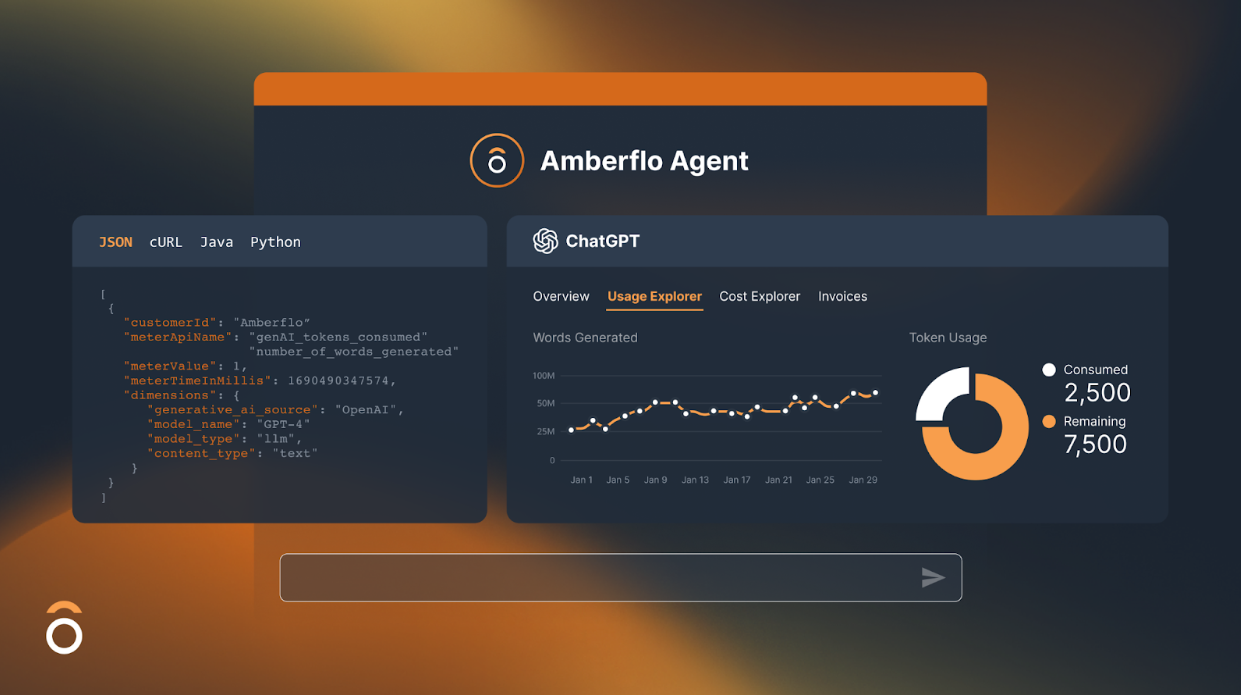* This is a contributed article and this content does not necessarily represent the views of IBTimes.
Amberflo
Every SaaS company has either already built GenAI into its applications or is discussing it to keep up with the competition and provide additional value to its customers. As companies scramble to keep up with this new paradigm, what’s left as an afterthought is how to actually build a profitable business model on the back of AI.
Monetization is a difficult problem. Modern SaaS companies are operating distributed, complex applications that are only becoming more complex with the rise of GenAI. But at the end of the day, if companies don’t have a monetization plan, they will be “showing up to the gold rush without a shovel,” according to Puneet Gupta, CEO and founder of AI monetization platform Amberflo.
Too many companies fail to realize that without a monetization strategy in place, they will likely lose money as they pay companies like OpenAI for tokens without having a way to offload those costs to customers and end users.
The solution lies in usage-based pricing. Amberflo launched a Generative AI monetization platform that companies can leverage to meter consumption and generate on-demand, real-time invoicing and billing for AI-based products and services. Amberflo meters how much companies spend on AI and how much their customers consume on the other end so that they can charge accordingly and make a profit on top of the unique value-added feature of the application.
What Are the Benefits of Metered-Based Pricing?
Most monetization models are fixed subscriptions, user-based license fees or seat-based license fees. However, anything AI/Ml is usage-based. Meter-based pricing only charges users based on the resources used, meaning businesses and customers have more control over the usage and expenses.
There are no hidden costs to metered billing. Customers can feel at ease knowing they are paying their money’s worth, leading to customer retention due to the transparency of the services. Companies can also better understand customer behavior by collating granular usage details, which can provide customer insights and behavioral analytics they can use to improve their products and services.
Why Choose Usage-Based Pricing for Generative AI?
Prompts and outputs produced by generative AI vary in length. The size of the prompt/output and resource consumption are directly related. Usage-based pricing can accommodate the variability and scale based on the frequency of use from one customer to another. For example, one customer gets charged more if they use the AI application hundreds of times a week, compared to a customer who only uses the AI rarely.
In addition, any tool leveraging ChatGPT and other generative AI models charges based on usage. Since the backend costs are variable by nature, customer-facing billing must follow suit with usage-based pricing.
To deliver fair and transparent pricing, companies must opt for usage-based pricing. Generative AI products have elastic frontend usage and backend costs. Amberlo can handle these products’ ingestion, aggregation and measurement so companies can construct a pricing strategy based on usage patterns and desired revenue outcomes.
3 Pillars for Monetizing AI
Usage Metering
Usage metering means tracking all service consumption. Each request (prompt and response) must be metered to obtain a complete picture of the revenue and costs, including the resources consumed to service the request (token counts, duration, result size, frequency and other performance metrics).
Simply ingesting an event cannot reflect the total usage. A solid, accurate and real-time metering foundation is needed to forecast costs accurately so companies can bill customers fairly. Companies can implement this by doing any of the following:
Add a markup over the underlying cost structure of Generative AI providersPrice the customer-facing pricing plans based on volume consumptionCreate a hybrid charge vectors
Flexible Quoting
In the Saas model, quotes are typically negotiated back and forth between the provider and the customer. When accepted, the final quote is parlayed into the long-term contract. Companies no longer have forecast pricing based on inaccurate estimates of the usage. They simply need to identify the value metrics that serve as bases when charging customers like the word count, total processing time for text generation, the size of the input prompt or resolution for image generation.
Companies can also offer pricing plans with flexible discounts and payment entitlements. This also includes built-in approval workflows for volume-based discounts and payment structures with custom payment schedules.
On-Demand Billing
Customers expect to see their usage rate and how much they are being charged at any point in a billing cycle. A modern billing platform like Amberflo can generate on-demand, real-time metered invoicing and billing to reveal the usage consumption of the generative AI service and the rate of their usage, ensuring maximal fairness and total transparency in the billing.
Companies can integrate the generative AI monetization platform with third-party tools to make usage and billing data visible and trackable. It can also integrate with CRM tooling to update customer records with live usage data and help streamline the support ticket resolution. If combined with finance and accounting tools, it can help with usage-based revenue recognition, invoice tracking, and so on.
Conclusion
Don’t show up to the AI gold rush without a shovel! Amberflo can meter the usage of underlying LLM and generative AI models so companies can effortlessly track prompt and token level usage, build flexible pricing and even automate on-demand metered invoicing and billing.
Their Generative AI monetization platform is a flexible, customizable and accurate real-time usage instrumentation metering system. It can scale with time and quickly monetize any variation of ChatGPT-based products and services.
Set up usage-based pricing to better understand how customers use an application and identify where they are getting value. Afterward, leverage these insights to build a transparent and fair business model to maintain a healthy profit margin when monetizing AI.
Artificial intelligence
2024-01-18 23:00:04
Original from www.ibtimes.com
